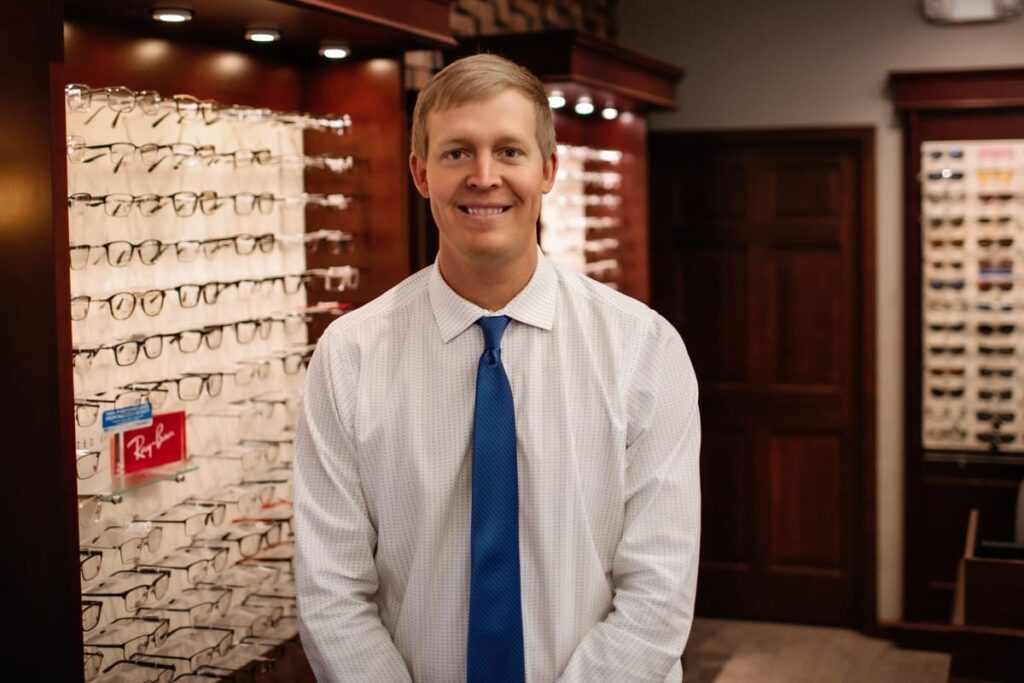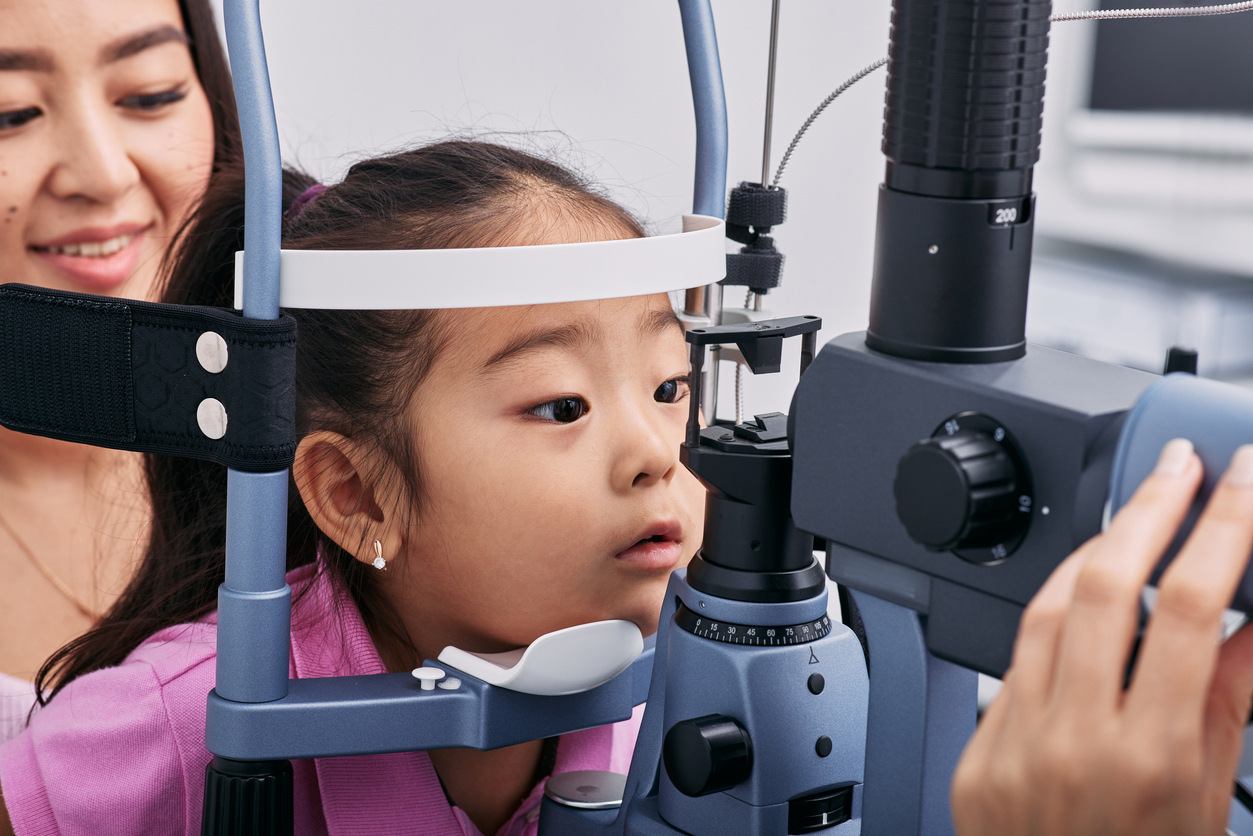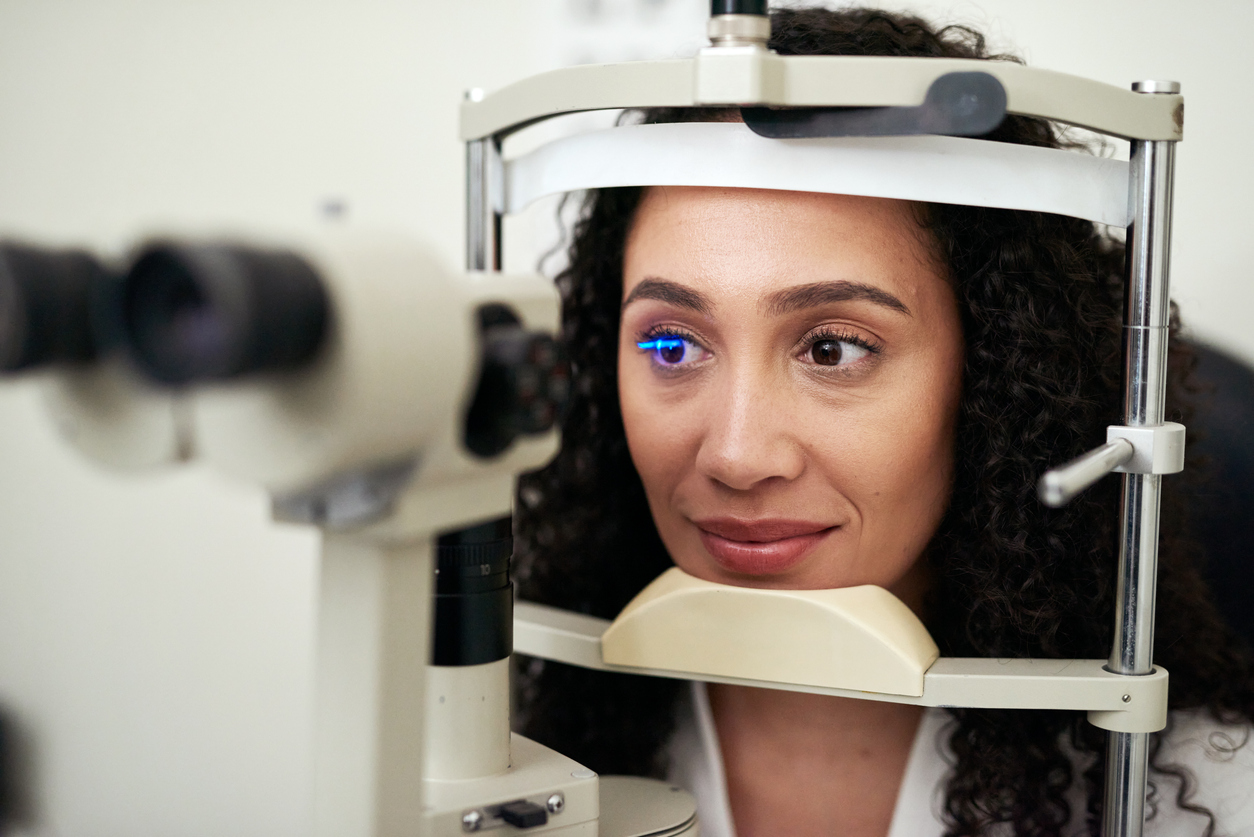As a parent, your little one’s health and well-being are your number one priority. A…
Can Carrots Actually Improve Your Eyesight?

When you were a kid, did a parent, teacher, or other adult ever tell you to “make sure to eat your carrots because they’re good for your eyes?” Personally, we were always skeptical of this. It just seems like it’s too strange to be true, but if you really think about it, it also seems like an even stranger thing to not be true because everyone keeps saying it.
We’re going to dig into the correlation between eating carrots and improved eye health, so keep reading if you would like to learn more!
How Carrots Improve Your Eye Health
Beta Carotene
Carrots are high in beta carotene (it’s easy to remember because “beta carotene” has “carrot” right in the name!), and beta carotene is good for your eyes.
The main powerhouse for optimal eye health is vitamin A. Vitamin A is critical for maintaining your ability to see. If you have low levels of vitamin A, the eye isn’t able to send visual signals to the brain.
The first initial symptom people tend to notice is night blindness, an inability to see when there is very low light. Night blindness largely depends on genetics, and it gets more common as we age, but supplementing eyes with high doses of vitamin A has been shown to decrease the progression of night blindness with age.
But what about the beta carotene? We’re getting to that! Vitamin A is one of the vitamins that the body can’t create on its own, so we need to eat foods in the right combination to help produce vitamin A. And that’s where beta carotene comes in! Beta carotene is a pigment that gives carrots their characteristically bright carrot-orange color, and it also kickstarts the body into producing vitamin A.
Lutein and Zeaxanthin
Lutein is an antioxidant that helps to protect and improve eye function. It’s basically a light filter that protects the eyes from UV damage, which is a much better solution than trying to put sunscreen on your eyes (don’t do that: it will sting).
Zeaxanthin, an organic pigment called a carotenoid, is also present in carrots. Scientists believe that it functions as a kind of light filter, protecting your eyes from sunlight damage.
Andover & Winfield Family Optometry offers lutein and zeaxanthin supplements that reduce the risk of macular degeneration and promote retinal health.
Calcium and Iron
Deficiencies in calcium or iron can contribute to the development of eye problems such as cataracts, macular degeneration, or anemic retinopathy. The best way to help avoid these conditions is by making sure to get enough of these vital nutrients and being sure to schedule regular eye exams for early detection.
Why Carrots? The War, the Myth, the Legend
During World War II, Britain was trying to keep secret the new scientific method they’d developed that gave their pilots superhuman night vision capabilities. Eventually word got out that the secret was carrots. Just regular carrots, and lots of ‘em!
The British Royal Air Force revealed they had been feeding their pilots extremely large amounts of carrots to improve their vision and the results of this experiment were plain to see in their success rates. If anyone ever wanted to catch up with the British, they better start eating more carrots!
Of course, that was a lie. Their secret scientific method for superhuman night vision capabilities was actually a new technology called radar. Carrots were nothing but the counter-intelligence agent used to protect this sensitive information from becoming widely known to their enemies.
Nevertheless, this farce helped popularize the narrative that carrots are good for your eyes—which they are! They just won’t give you eyes on par with Superman.
What Carrots Don’t Do
Carrots don’t improve your vision. If you have impaired vision and need corrective lenses to get you where you should be, you won’t lower your prescription enough to skip wearing eyeglasses by eating carrots (the best way to skip wearing eyeglasses is by switching to contact lenses). Think beyond your vision to your eye health: that’s what carrots do!
Don’t Like Carrots? Here Are Your Alternatives
Kale, spinach, and other dark leafy greens are basically the perfect swap: they have vitamin C, vitamin K, calcium, and iron—all great building blocks for great eye health!
Sweet potatoes actually have more beta carotene than carrots. Why doesn’t anyone ever say, “make sure to eat your sweet potatoes because they’re good for your eyes?” We’ve uncovered a carrot conspiracy!
Fruits high in vitamin C, such as citrus fruits, strawberries, kiwifruit, papayas, and tomatoes, are also great for your eyes.
Doctor’s Recommendation
Eat your carrots for your eye health, your overall health, and because they’re a tasty snack (plain, with some peanut butter or with ranch for dipping)! Are you looking for more ways to improve your eyesight that you won’t find in the produce aisle? You can schedule your regular eye exam right now while you’re thinking about it!
If you live in Andover, Winfield, or east Wichita, KS, and you’re due (or overdue) for an eye exam, then we invite you to schedule an appointment with us!
Andover & Winfield Family Optometry offers comprehensive eye exams that go beyond a basic visual screening. We perform a series of visual acuity tests to make sure you’re seeing your best, and we also examine your eyes to identify early signs of health issues to facilitate early treatment and ensure your eye health stays at its best.
Call (316) 361-1020 for our Andover location or (620) 221-2015 for our Winfield location. We can’t wait to meet you!
About the Doctor
Dr. Matt Boswell was born and raised in Wichita, Kansas, where he graduated from Kapaun Mt. Carmel High School. He attended Emporia State University to play on the Men’s Basketball Team while getting his Bachelor of Science degree in Biology, Pre-Optometry. While there, Dr. Boswell made the academic honor roll every year while receiving all-league honors his senior year. After graduating from ESU, he went to Memphis, Tennessee, and received his Optometry Degree from the Southern College of Optometry in 2016. Dr. Boswell is excited to practice back in Andover and Winfield, where he was a patient of Dr. Holman’s growing up and shadowed him in high school.
Dr. Boswell’s areas of interest are comprehensive primary eye care and ocular disease, including glaucoma, macular degeneration, cataracts, and diabetes. He also loves fitting contact lenses and seeing kids. He is an active member of the American Optometric Association and the Kansas Optometric Association. Dr. Boswell resides in East Wichita with his wife, Kirsten, a nurse. They welcomed their first child in February 2022, Baker. They love the outdoors, playing sports, fishing, and staying active with their Bernese Mountain Dog, Franny.




